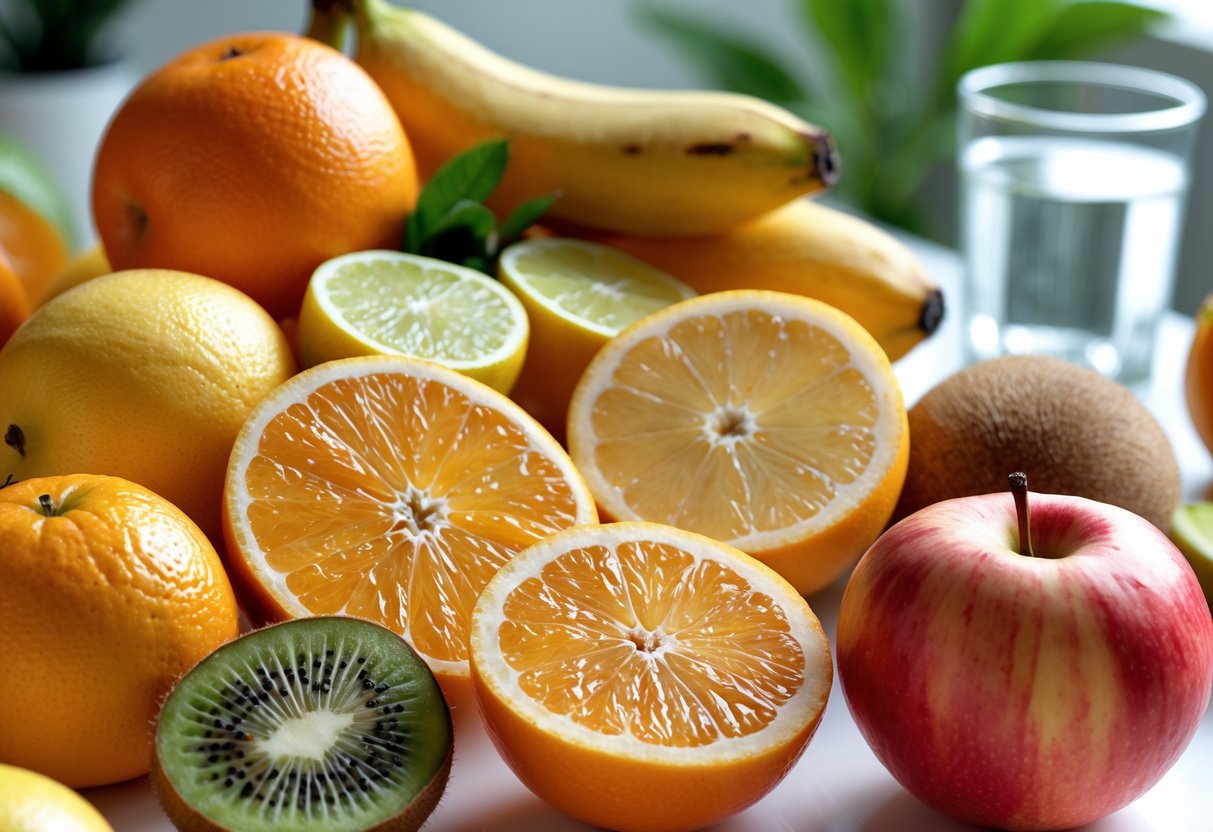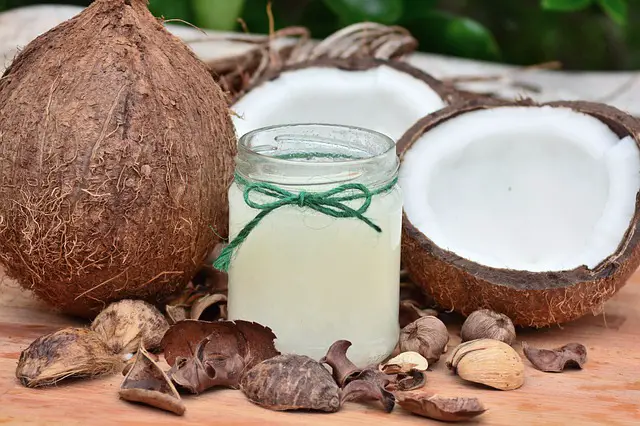Fruits To Eat When Sick For A Quick And Tasty Recovery

When you buy through links on our site, we may earn an affiliate commission at no additional cost to you (learn more)
Feeling sick can make eating tough, but the right fruits can help the body heal faster and feel better. Fruits rich in vitamins, fluids, and antioxidants support recovery by easing symptoms and boosting the immune system. Simple choices like citrus, bananas, and berries can make a real difference during illness.
This post explains which fruits help most when sick and how to enjoy them when appetite is low. It keeps things easy to follow so anyone can pick the best options and get gentle nourishment while recovering.
Best Fruits To Eat When Sick

Fruits that are gentle on the stomach, packed with nutrients, and easy to eat can help support recovery. Options rich in vitamin C, potassium, and antioxidants give the body what it needs to strengthen the immune system and maintain energy.
Citrus Fruits and Their Benefits
Citrus fruits like oranges, lemons, and grapefruits provide high levels of vitamin C, which supports immune health. Vitamin C helps the body form collagen and repair tissues, and it may shorten the duration of a cold.
These fruits also offer hydration because of their high water content. Eating citrus can help ease dry throat or dehydration, which are common when sick. In addition, the natural sugars found in these fruits provide a mild energy boost without heavy fats or processed ingredients.
Some people prefer to drink warm lemon water or fresh orange juice when they have a sore throat or fever. The mild acidity can help cut through mucus, but those with stomach sensitivity may want to dilute citrus juice or eat it in small portions.
| Fruit | Key Nutrient | Benefit |
|---|---|---|
| Orange | Vitamin C | Supports immune function |
| Lemon | Citric acid | Aids hydration and digestion |
| Grapefruit | Antioxidants | Helps reduce inflammation |
Bananas for Digestive Comfort
Bananas are often recommended for people with nausea, vomiting, or diarrhea. They fit well into the BRAT diet (Bananas, Rice, Applesauce, Toast) often used for recovery from stomach illness.
They are gentle on the digestive tract because they contain pectin, a type of fiber that helps firm stool and reduce diarrhea. Bananas also supply potassium, which supports hydration and helps replace electrolytes lost through sweating or vomiting.
Their soft texture makes them easy to chew and swallow even when a sore throat or fatigue reduces appetite. Bananas can be eaten plain, mashed, or blended into smoothies with other mild ingredients like oats or yogurt.
This fruit’s mild sweetness and quick energy support recovery without irritating the stomach. Keeping ripe bananas on hand makes them a convenient choice during illness.
Berries Rich in Antioxidants
Strawberries, blueberries, raspberries, and blackberries are loaded with antioxidants, such as vitamin C and anthocyanins. These nutrients help protect cells from damage caused by stress and infection.
Berries also contain fiber, which supports digestion and helps keep energy levels stable. While fresh berries are preferred, frozen berries work just as well for smoothies or warm oatmeal when picking fresh produce isn’t an option.
Their small size and pleasant flavor make them easy to add to meals even when appetite is low. Many people notice that the bright flavors of berries can make food more appealing, encouraging them to eat more even while recovering.
A simple serving suggestion:
- Top plain yogurt with blueberries.
- Mix strawberries into oatmeal.
- Blend raspberries and banana for a quick smoothie.
Apples for Easy Digestion
Apples are gentle fruits that support both hydration and digestion. When someone is sick, eating applesauce or cooked apples can soothe the stomach and provide light nourishment without heaviness.
Apples contain soluble fiber (pectin), which supports gut health and helps manage either constipation or diarrhea. They also include vitamin C and natural sugars that encourage stable energy without caffeine or artificial additives.
Raw apples may be too firm for some when sick, so softened or peeled apples are good alternatives. Heating apples makes them easier to digest and still retains key nutrients.
For a simple, comforting option, plain applesauce or lightly stewed apples can be served warm to help increase comfort during recovery.
How to Choose and Enjoy Fruits During Illness
When someone feels under the weather, picking gentle, nourishing fruits helps recovery. It matters to select clean, ripe produce, prepare it safely, and know which kinds to skip if they upset the stomach.
Selecting Fresh and Safe Options
During illness, freshness and cleanliness make a big difference. People should look for bright color, firm texture, and no mold or soft spots. Washing fruits under running water and drying them with a clean paper towel helps remove dirt and germs. If peeling is possible, it reduces risks further, especially for those with weaker immune systems.
Buying from trusted stores or markets ensures better quality. Pre-cut fruit should be kept refrigerated at 40°F (4°C) or below and eaten soon after purchase. Whole fruits last longer, but they should still be checked daily for signs of spoilage.
For ease and safety, many choose bananas, apples, or pears, which need little preparation. These fruits also tend to be gentle on the stomach, providing vitamins and energy without being too heavy.
Serving Suggestions for Soothing Symptoms
Soft textures and mild flavors usually feel best when someone feels sick. Mashing ripe bananas or steaming apples can make them easier to eat. Chilling fruits such as melon or oranges may help cool a sore throat or reduce fever discomfort.
A small table of helpful options:
| Fruit | How to Serve | Benefit |
|---|---|---|
| Banana | Mashed or sliced | Gentle on stomach, adds potassium |
| Apple | Steamed or pureed | Easy to digest, mild sweetness |
| Melon | Chilled cubes | Refreshing and hydrating |
| Berries | Blended in yogurt | Adds antioxidants and flavor |
People should start with small portions, then add more if tolerated. Mixing fruits in smoothies with water or yogurt can improve hydration and give extra nutrients. Avoid adding strong spices or heavy toppings that might irritate the stomach.
Fruits to Avoid When Unwell
Certain fruits can cause discomfort or slow recovery. Citrus fruits like lemons or grapes may irritate sore throats because of their acidity. Some people also feel stomach pain after eating pineapple or kiwi, which are high in acids and enzymes.
Those with diarrhea should avoid dried fruits and high-fiber options such as raw pears or prunes, since they can worsen symptoms. Fruits coated with sugar or soaked in syrup add empty calories and little nutrition.
If nausea is a problem, strong-smelling or overly sweet fruits can trigger discomfort.



